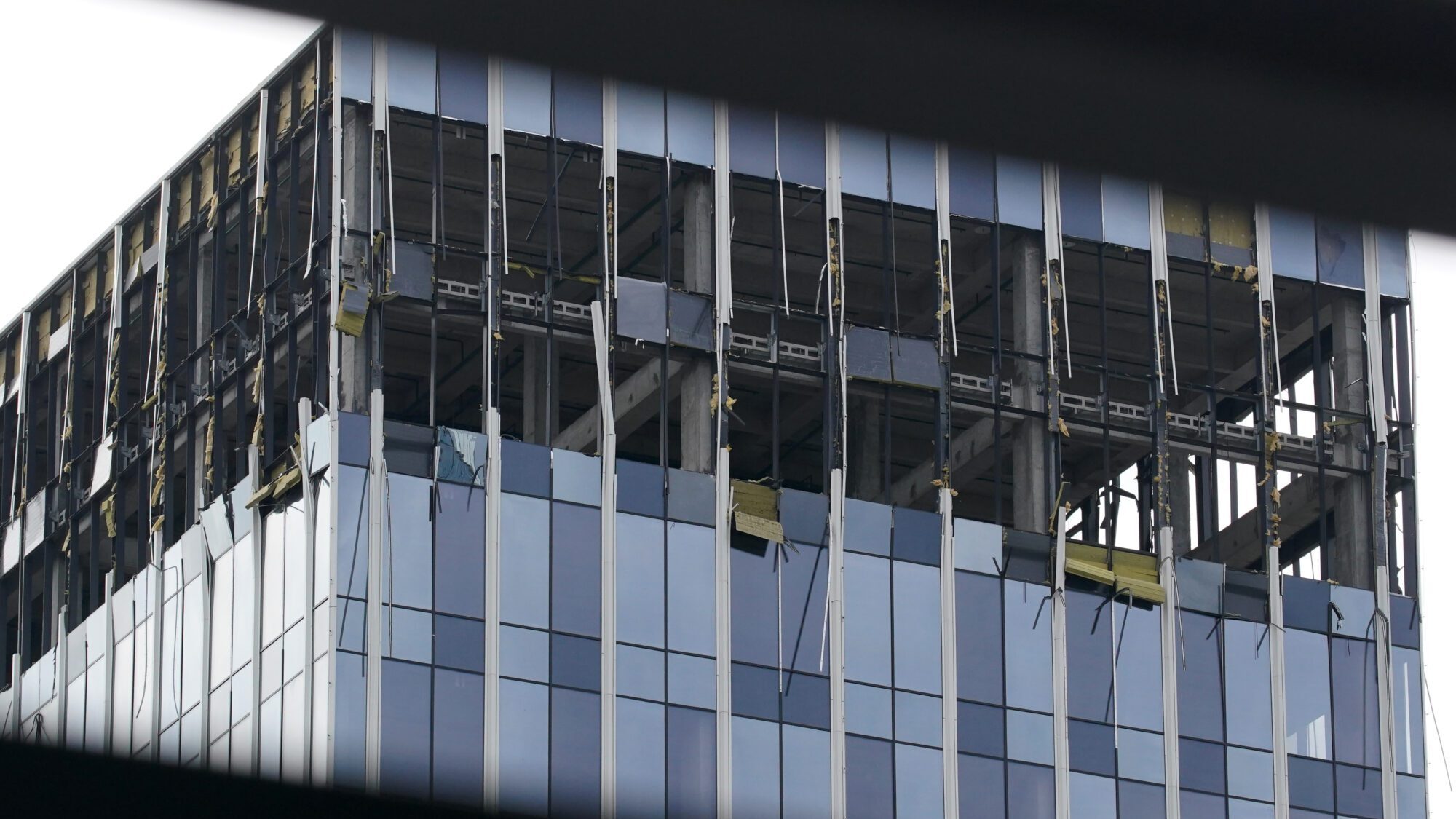
A view of a damaged business centre on Likhacheva Street after a reported drone attack in Moscow on July 24, 2023.
Photo: STRINGER / AFP
Ukrainian authorities have taken responsibility for an attack that saw a pair of unmanned aerial vehicles (UAVs) crash into buildings in the Russian capital in the early hours of Monday, July 24th, not far from the Ministry of Defense headquarters, calling into question Moscow’s ability to control its own airspace.
The attack, which the Kremlin has decried as an “act of international terrorism,” damaged several non-residential buildings and took place as the Russian military conducted strikes against key port infrastructure on the Danube River, close to Ukraine’s southern border with Romania, an EU and NATO member.
Speaking to CNN on the condition of anonymity, an official from Ukraine’s Defense Intelligence—an arm of its Ministry of Defense—claimed the agency was responsible for planning and carrying out the operation.
Ukrainian Minister of Digital Transformation Mykhailo Fedorov, in charge of the country’s “Army of Drones” procurement plan, also claimed responsibility for the attack and promised that there “will be more” of these strikes in the future.
In an initial statement, the Russian Defense Ministry blamed Kyiv for the attack which it claimed to have thwarted with “electronic warfare systems.” Moscow Mayor Sergey Sobyanin said the attack had occurred at around 4 am local time and that “there were no serious damages or casualties.”
The Russian Foreign Ministry described the attacks as “another use of terrorist methods by the military-political leadership of Ukraine.”
“These attacks had no military meaning. We strongly condemn this yet another crime of the Kyiv regime. We call on international organizations to give it a proper assessment,” the statement said.
According to a report from the Russian state media outlet TASS, fragments of a downed UAV were discovered in Komsomolsky Prospekt in Moscow’s city center, while another drone crashed into a high-rise office building in the southern part of the Russian capital, shattering many of its windows.
Drones attacked Moscow.
— Daria Matviichuk (@DariaMatviichuk) July 24, 2023
The Russian Defense Ministry said two unmanned flying machines tried to attack the city. Two UAVs were suppressed by electronic warfare and subsequently crashed. #Russia #Moscow #UkrainaRussianWar pic.twitter.com/U8l7hzQs6y
Whether the drones had intended to target the Ministry of Defense headquarters, situated just a couple kilometers from the Kremlin, or another target in central Moscow is not entirely clear.
News of the downed drones in the Russian capital comes one day after at least one person was killed and 22 others were injured during missile strikes on the Ukrainian port city of Odesa which badly damaged several cultural sites, including the Orthodox Transfiguration Cathedral—a UNESCO world heritage site.
Moscow has vehemently denied targeting the cathedral, with Russia Foreign Ministry Spokeswoman Maria Zakharova suggesting instead that the tragedy “was on the conscience of the Kyiv regime,” and its “incompetent operators of air defense systems, which are deliberately deployed by the Ukrainian army in residential quarters.”
Ukrainian President Volodomyr Zelensky, for his part, condemned the attack “against peaceful cities, residential buildings, and the cathedral.” Before pledging to take retaliatory actions, Zelensky said there could be “no excuse for Russian evil, which “as always,” would “lose.”
